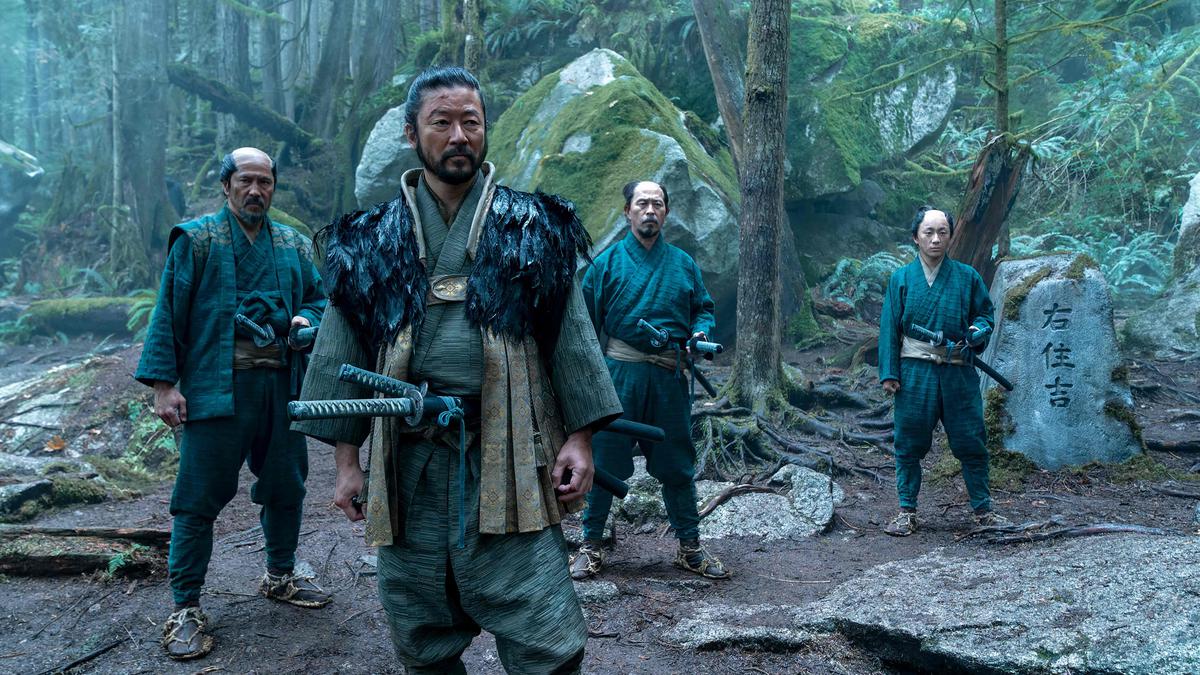
Power of translation: ‘Shōgun’ champions the art of understanding Premium
The Hindu
FX's Shōgun finale masterfully explores the complexities of translation, cultural exchange, and historical intrigue in a captivating manner.
In its grand finale, FX’s captivating rendition of James Clavell’s historical epic gracefully bows out with a rendezvous with mortality.
“Please split your belly open by sunset,” and “Have a good death” echo some of what we hear with the casualness of a tea sip. Yet, to truly grasp the weight of seppuku’s socio-historical significance, honour the richness of its source material, and deftly navigate the intricacies of translation, the series stands alone in its unparalleled achievement. Shōgun employs a three-pronged approach, replete with cross-cultural exchanges, verbal fencing, and the delicate dance of understanding in an era poised on the precipice of profound change.
The 1980s adaptation — starring the legendary Toshiro Mifune — opted for a bold approach, withholding subtitles from Japanese dialogue to immerse viewers in protagonist John Blackthorne’s disorientation, that paid dividends in dramatic tension. Fast forward to 2024, and FX’s iteration takes a different tack, embracing the power of translation to illuminate the inner workings of Japanese characters’ minds. It’s a choice that enriches Clavell’s narrative, granting viewers access to the proverbial other side of the coin.
At the heart of this lies a delicate balance between staying true to Clavell’s original vision and distilling the dense historical context of feudal Japan without succumbing to the siren call of dull exposition. The show’s creators, Justin Marks and Rachel Kondo undertook this Herculean task, ensuring that the essence of Clavell’s 1,100-page opus remained intact while also infusing it with a contemporary sensibility.
Central to this reality-shaping alchemy is Anna Sawai’s Lady Mariko, whose role as translator transcends mere linguistic mediation. As she offsets the cultural tete-a-tete, Mariko becomes a conduit for understanding, her words shaping the discourse between characters. In her hands, translation becomes a form of artistry, a delicate dance of diplomacy and deception that mirrors the intricacies of courtly intrigue. Where Blackthorne wants the “milk-dribbling ... smear” to know he’s ready to go, Mariko casually converts to a prompt, “With utmost respect, the Anjin apologises for the misunderstanding” to hilarious effect; so much so, that this continuous back and forth between the two has quickly turned into an internet meme.
Mariko’s mastery of the spoken word mirrors linguistic theory’s acknowledgment of translation as a nuanced art form, and the gravitas with which she employs the spoken word as the long-alluded ‘Crimson Sky’ herself, is a testament to how language can shape perceptions, and alter destinies and end entire wars far greater than the sword ever could.
But translation is not just about mastering vocabulary and syntax; it’s about values, traditions, and the subtle nuances that define a culture. Behind the scenes, the creators embarked on a decade-long journey to bring Clavell’s vision to life, painstakingly recreating the sights, sounds, and sensations of 17th-century Japan. From the meticulously crafted costumes to the scrupulous translation of dialogue, every detail is a brushstroke in their masterpiece and a testament to their unwavering commitment to storytelling excellence. For viewers, the result is a sumptuous feast for the senses, where every frame pulsates with the elegance of a bygone era.













